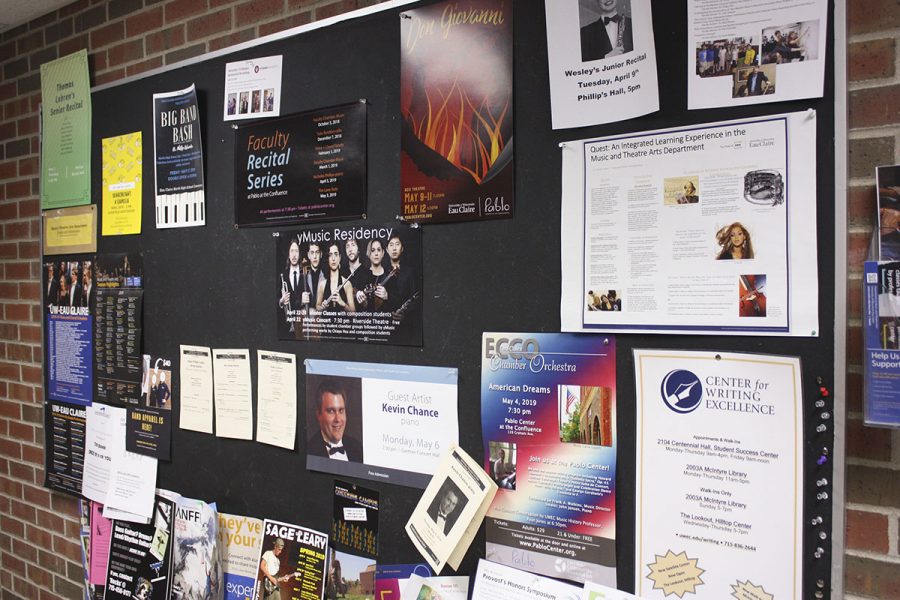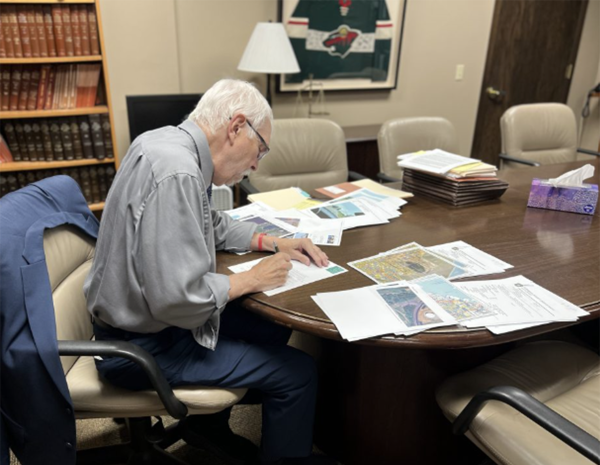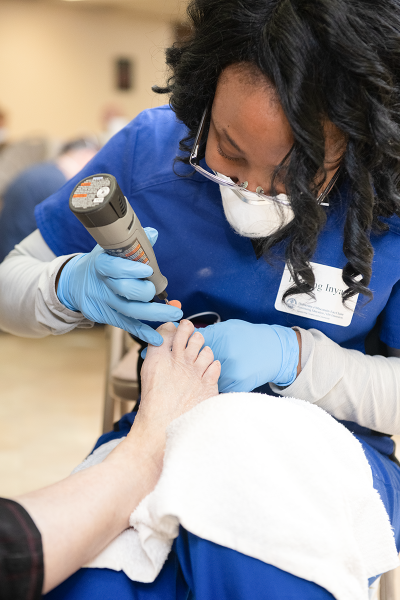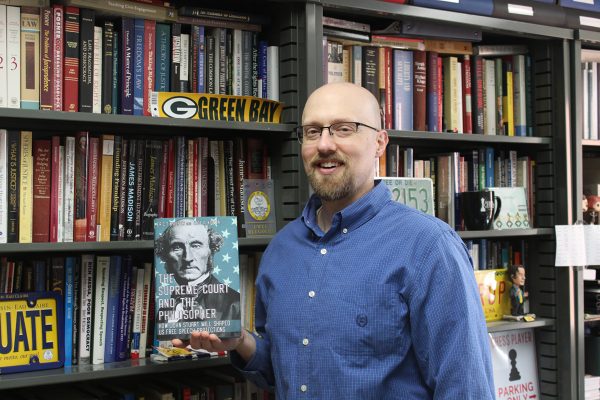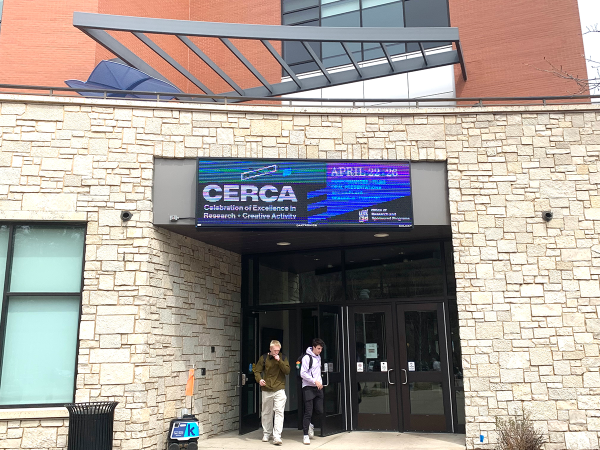Recording arts certificate makes debut fall 2019
Recording certificate to offer classes ranging from music to physics courses available for students
Photo by Lauren Springs
The recording studio at the Pablo Center just got its first use on April 22 with chamber ensemble yMusic.
Coming in the fall 2019 semester, UW-Eau Claire students will have a new Recording Arts certificate available to them, courtesy of the Music and Theatre Arts department.
This 18-credit certificate has three required courses, with an additional 13 courses possible for elective credits.
“We have wanted to have a recording arts certificate for at least 10 or 15 years,” Gretchen Peters, chair of the Department of Music and Theatre Arts, said. “We’ve been talking about it, it’s a very appealing certificate to a wide group of students.”
The recording arts certificate aims to teach students to be able to make a studio recording or a live recording that captures the quality of the performance as much as possible, said Peters.
According to Peters, the certificate wasn’t possible in the past due to a lack of a space for a soundproof recording studio. Additionally, none of the faculty in the department were properly equipped to teach the necessary sound technology skills to students.
“The reason we can do it now is because of the Pablo Center,” Peters said. “The Pablo Center has a state of the art recording studio in it that we have access to like one of our classrooms.”
Assistant professor Erin Hisey will be a new hire come fall 2019. According to Peters, Hisey’s background with sound design makes her the last piece to achieving the certificate and holding a sound technology class.
For Gary Don, a professor of Music Theory, the certificate offers a high paying job for students who choose to pursue a career in the music industry.
“It’s something like a 100 billion dollar music industry in this country,” Don said. “And a lot of that involves recording or sound boards. So in other words there’s a big industry to tie into.”
The program’s three required courses include a sound technology class, an electronic music class and an internship. Because of these required courses, the music and theatre department anticipate roughly 15 students being able to participate in the program per year.
“The big point of a degree program like this is that a certificate program like this has to have a hands-on component,” Don said. “That’s the whole point, so for it to have a hands-on component, we can’t have the class sizes too large.”
Peters also said that there has been conversations with a number of local musicians in the Chippewa Valley to see if they would participate in some of the classes as guest artists or speakers.
“We’ll be taking advantage of all of the experts in popular music in the area that can contribute to our curriculum and contribute to the students,” Peters said. “So it’s actually a really great way to all that’s taking place off campus with the music scene.”
Peters also stressed that now is the best time to sign up, as registration is still open and there is a music theory course for the summer semester that students would need to take.
“People are always saying, ‘What are you going to do with your music major?’” Samuel Stein, a first-year music composition and math student, said. “Or, ‘What kind of job out of college are you going to get with a music major?’ And here’s your answer.”
Spierings can be reached at [email protected].
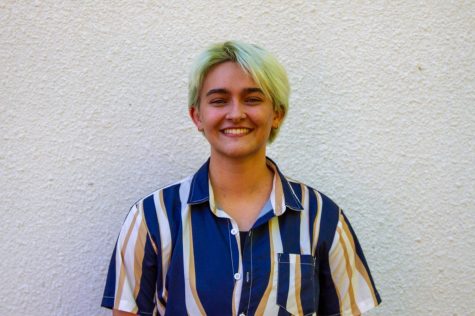
Timothy Spierings is a fourth-year Spanish and journalism student. This is their eighth semester on The Spectator staff. They enjoy trying all types of new foods and listening to new music artists and are currently trying to learn the bass guitar.

